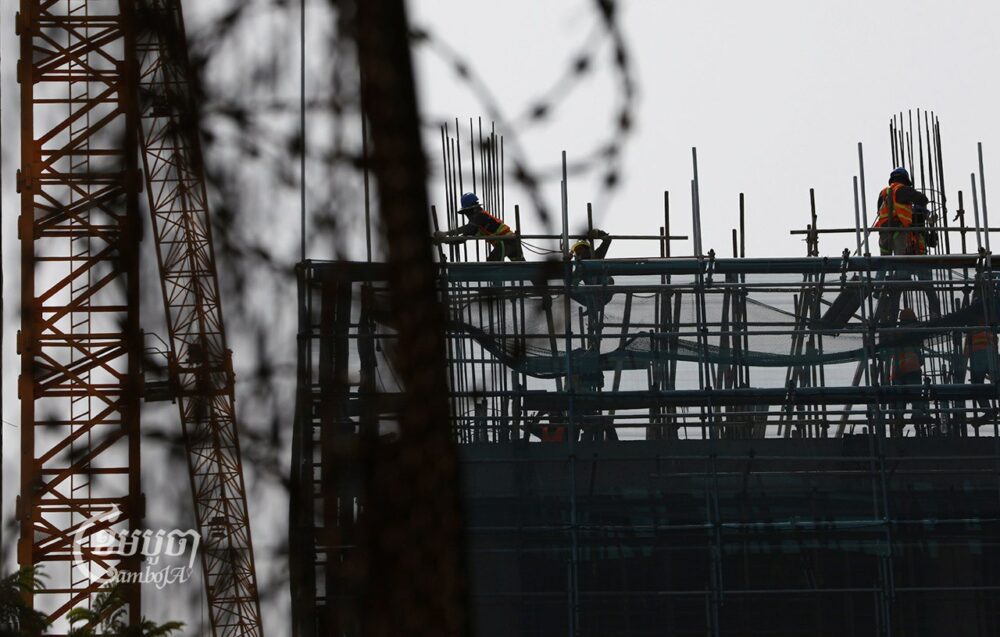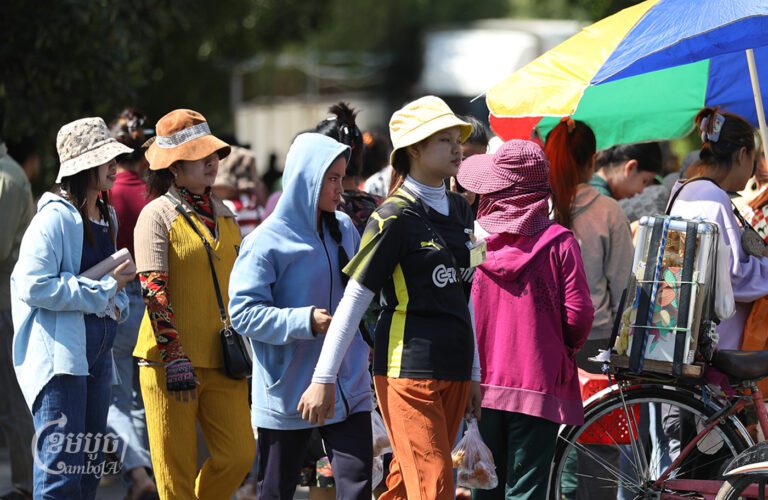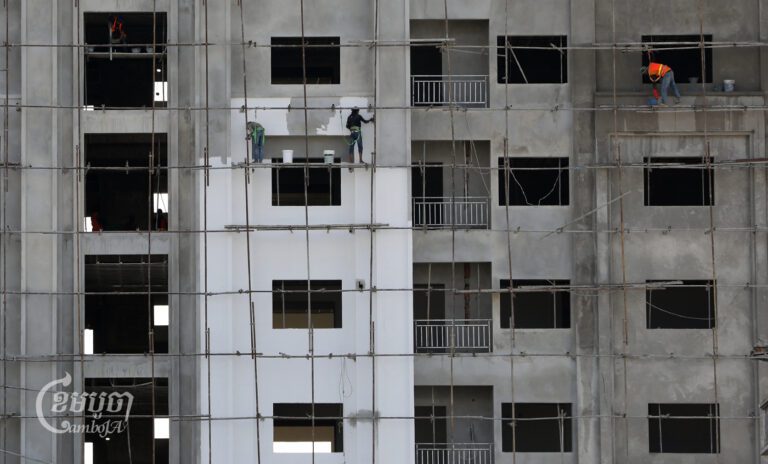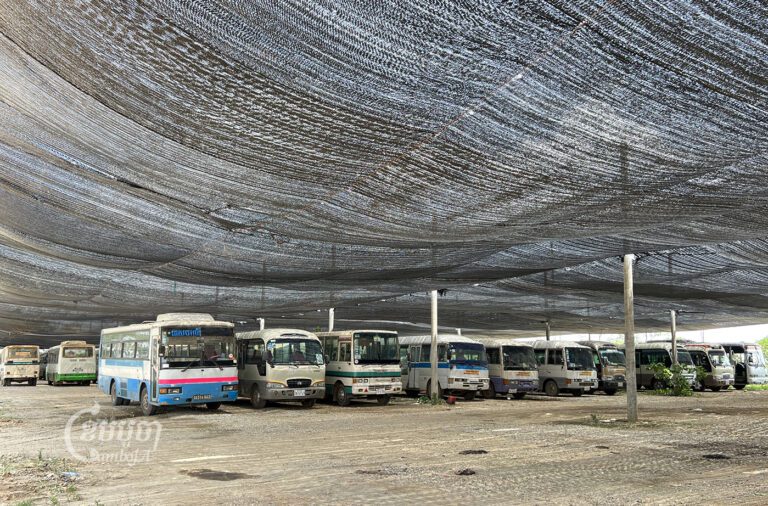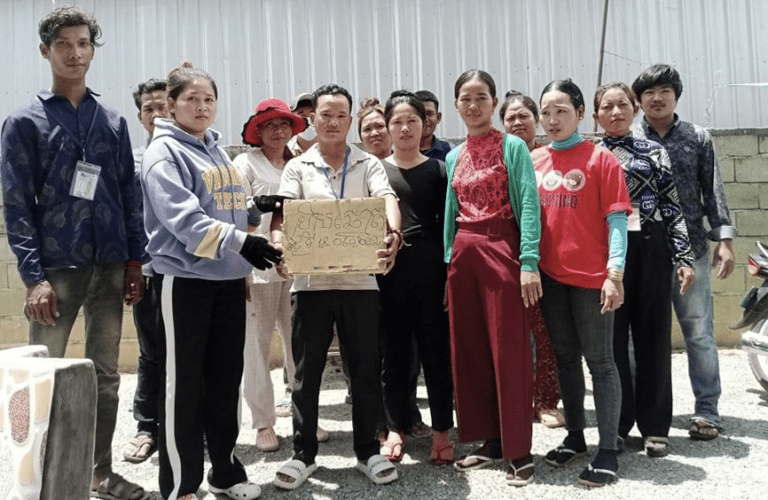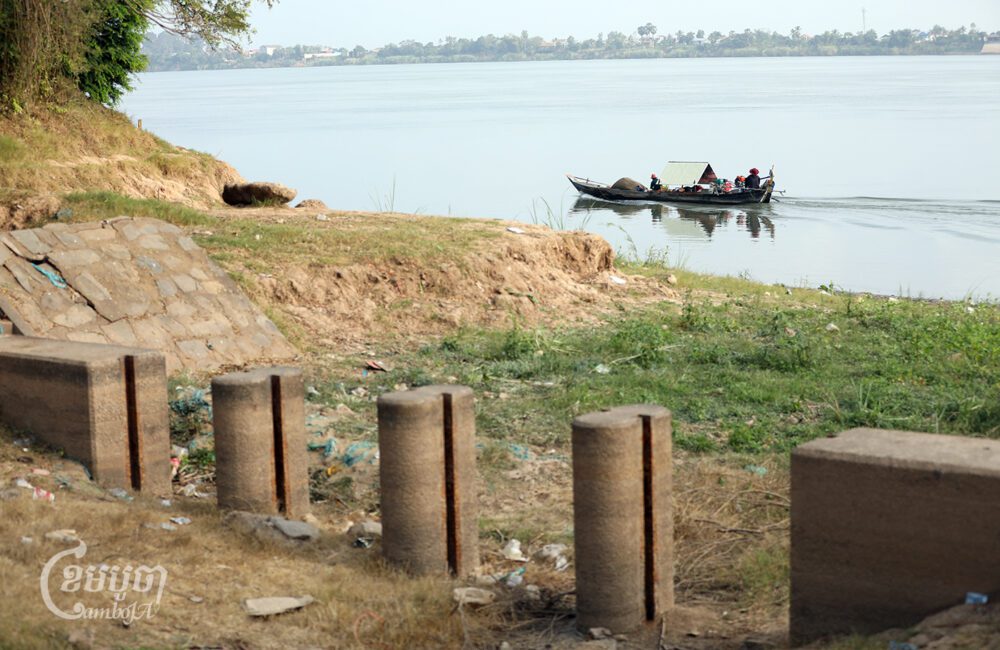On a Friday afternoon, Him Bunchhay wore no safety equipment as he laid bricks on the second floor of a residential building site in Phnom Penh’s Chbar Ampov district.
Despite the dangers of the job earning him $12.5 per day, Bunchhay had little knowledge about the healthcare and accident insurance benefits he qualified for through the government-run National Social Security Fund (NSSF).
Under the labor law, all workers are supposed to receive NSSF benefits. But many construction workers remain unaware of what they are owed by employers and most construction workers are not registered to receive NSSF benefits.
“I just heard a bit about NSSF but at my work no one is talking about this, even my boss,” Bunchhay said, adding that working in the construction industry, where he has worked for 10 years, accidents and health problems are common for workers.
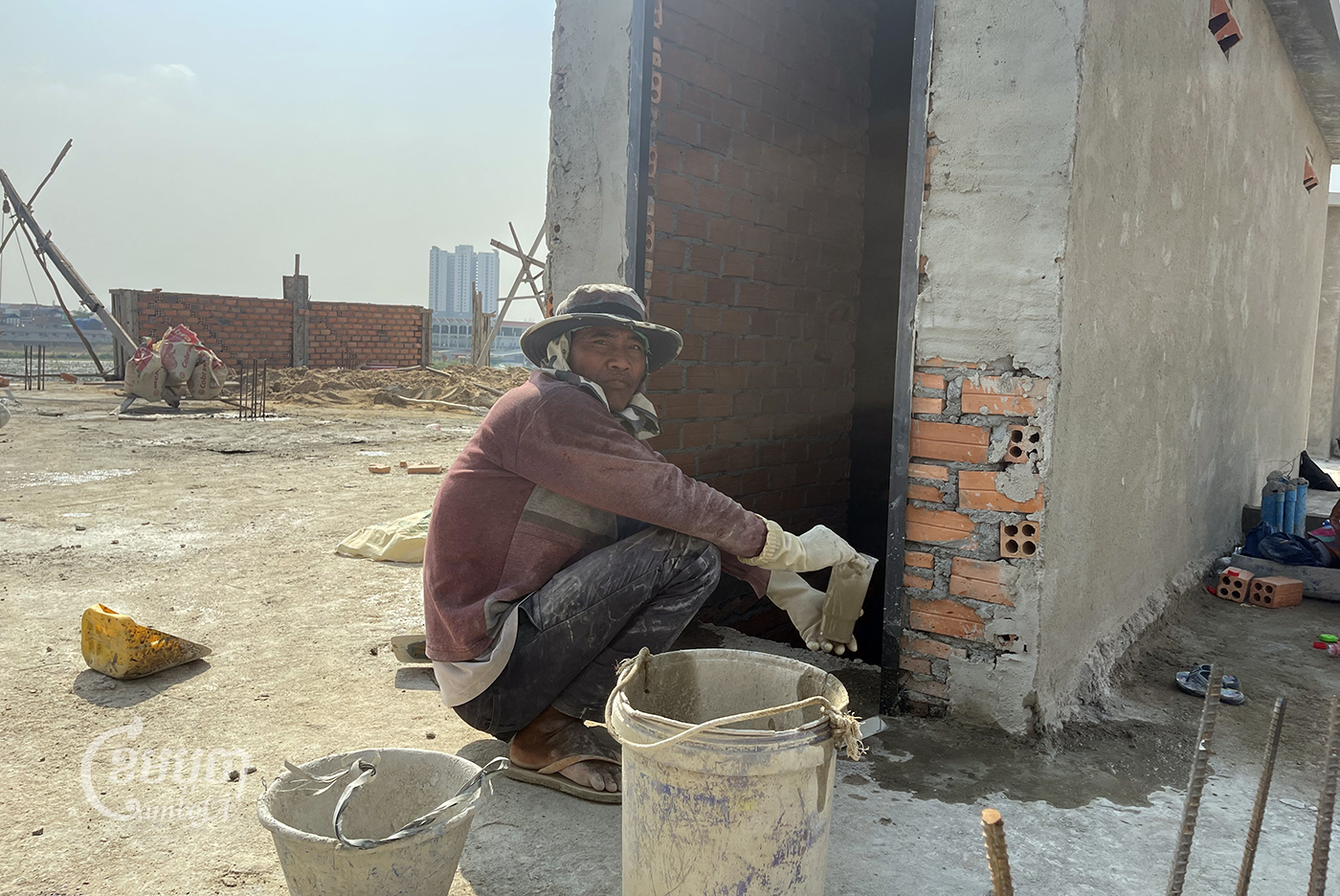
Cambodia’s booming construction industry employs an estimated 250,000 workers, many of whom relocated from rural areas to find work in Phnom Penh’s deadly construction sector. The government approved 4,276 construction projects in 2022, collectively valued at nearly $3 billion, according to a Ministry of Land Management report.
Yet NSSF’s deputy director-general Heng Sophannarith, said that only 465 construction enterprises had registered 32,273 workers to receive NSSF benefits as of March.
Sok Kin, president of the Building and Wood Workers Trade Union Federation of Cambodia, said he estimated that only half of the 6,000 construction workers in his union were registered for NSSF and noted that registration is almost never facilitated for subcontracted workers.
“Workers are facing high risk at work, when they have an accident or health problems, they spend their own money for treatment while also losing their job,” he said. “They do not have enough good food to eat and when they fall sick, they have no money, that is why it is necessary for them to have access to the NSSF.”
Oun Kun, a construction foreman who watches over eight workers at a building site, said that he never received any information about the NSSF from authorities or the project owners.
“No one has come to tell me about this, and I also don’t know how it works, while most construction workers always change from place to place which is difficult for them,” he said.
The construction industry has boomed in Phnom Penh, where more than 61,000 projects worth $69 billion have been approved since 2000, but the sector remains a leading killer of workers.
The International Labour Organization (ILO) estimates that more than 1,500 workers are killed each year by occupational accidents in Cambodia, mostly in construction sites, brick kilns and small enterprises “that have neither the knowledge nor system in place to protect workers.”
The majority of subcontracted workers lack safety equipment, union leader Sok Kin said. In cases of accidents, families struggle to receive compensation. Without registering for NSSF, families of workers may be unable to claim benefits.
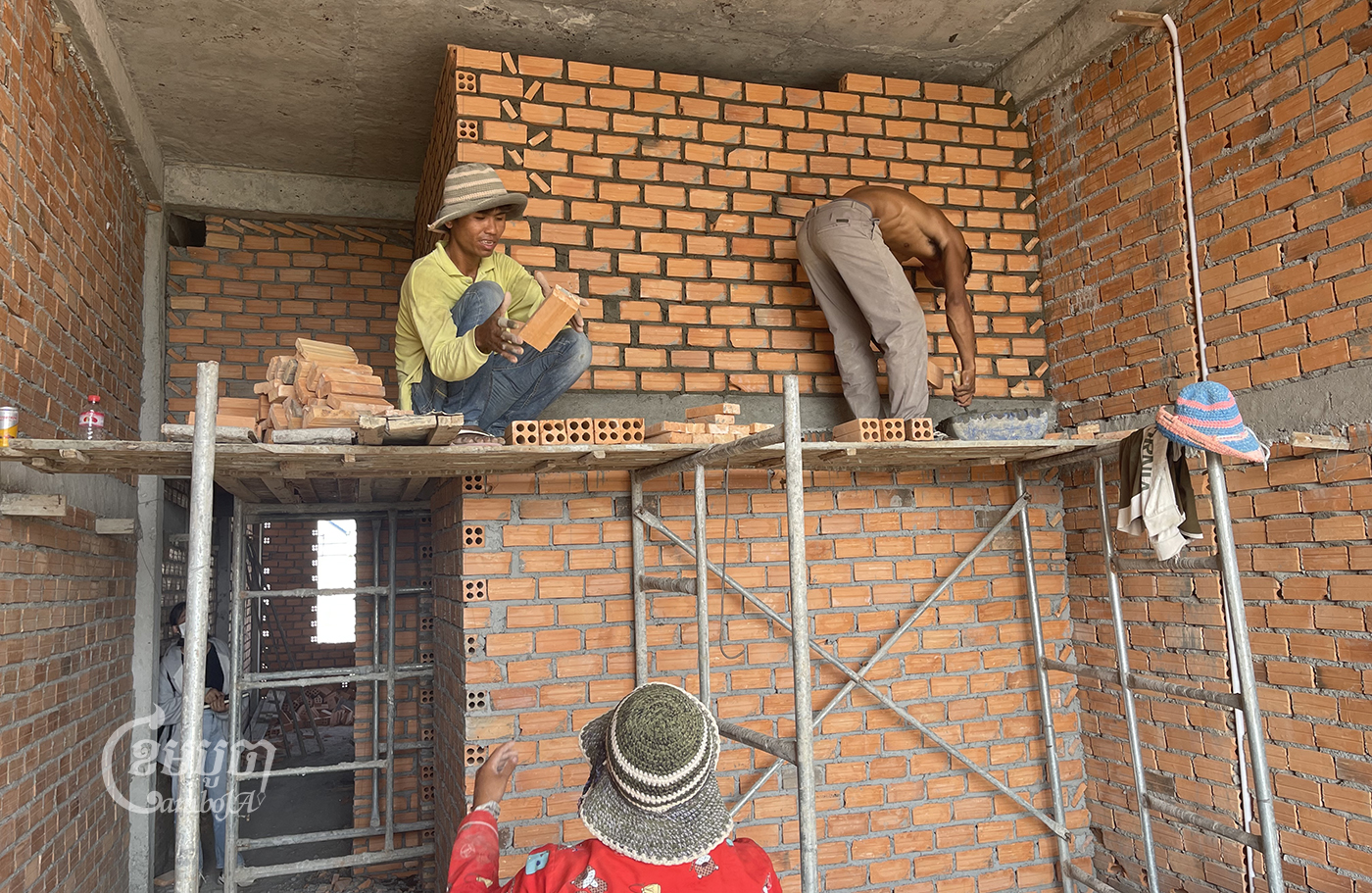
In 2022, the Ministry of Labor registered 20,175 enterprises with 2,567,953 employees having access to accident insurance and healthcare insurance through NSSF.
The government has made efforts to extend the reach of NSSF benefits, allowing some tuk-tuk drivers and domestic workers in the informal sector to register through a pilot program launched last October.
Sophannarith added that sub-contracted construction workers also qualify under existing law but have struggled to register.
“Construction workers change jobs frequently, as most of them do not have ID cards,” Sophannarith said. “We are working to educate them to understand the benefits of the social security system.”
Many subcontracted construction workers are forced to be itinerant laborers by the nature of their job, which often ends when a project is finished.
“We [workers] labor under sunlight every day and use a lot of energy, we face health issues and easily fall sick,” Bunchhay said. “We have to pay for treatment on our own. So, I really want to access NSSF because it can help reduce costs when I get sick or meet with an accident occasionally.”
Soy Seng, a 28 year old construction worker from Svay Rieng province, said he was registered for NSSF when he was employed in the garment industry but since leaving the factory has not had access to NSSF benefits. He fears what he would do in the event of an accident.
“I always get dizzy, and I am worried that when going up to the high floor, it could be dangerous for me because accidents happen occasionally,” he said. “If construction workers could access the service [NSSF] like factory workers, I would be happy and feel safe, I would feel protected like any other employee.”


